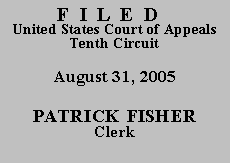

| UNITED STATES OF AMERICA, |
|
| v. | |
| JOSE JAVIER LOZA, | and 04-CR-10047-01-WEB) |
Background
The factual background of this case is not in dispute and we need not recount it in detail here. In brief, a Kansas state highway patrol officer apprehended Loza transporting marijuana on June 27, 2003, and he was charged for possession with the intent to distribute more than 100 kilograms of marijuana, in violation of 21 U.S.C. § 841. Thereafter, Loza was released on bond and failed to appear for a status conference on August 15, 2003. The United States Marshals Service arrested him attempting to reenter the United States from Mexico on February 19, 2004, and he was charged for failure to appear, in violation of 18 U.S.C. § 3146(a)(1).
After the district court denied Loza's motion to suppress the evidence gathered during the traffic stop, he pled guilty to both charges. The Presentence Investigation Report (PSR) recommended a base offense level of 26 for the drug conviction and a two-level enhancement for obstruction of justice for the failure to appear conviction pursuant to USSG § 3C1.1. The PSR also recommended against a downward departure for acceptance of responsibility pursuant to USSG § 3E1.1. It therefore arrived at a total offense level of 28, which, when combined with Loza's criminal history category of I, yielded a sentencing range of 78-97 months.
Loza objected to the PSR, arguing that he was entitled to a reduction for acceptance of responsibility and also that Blakely v. Washington, 542 U.S. 296 (2004), required a jury to make that determination. The district court found Blakely inapplicable because (1) Loza had waived his right to a jury trial by pleading guilty and agreeing to have his sentence determined under the Guidelines, and (2) Blakely did not apply to the question of whether a defendant is entitled to a sentence reduction for acceptance of responsibility. The court also concluded Loza was not entitled to a reduction for acceptance of responsibility because his absconsion was inconsistent with an affirmative demonstration of acceptance of responsibility, notwithstanding his subsequent guilty pleas. The court then adopted the PSR without change and sentenced Loza to 78 months imprisonment, the low-end of the applicable sentencing range.
Discussion
On appeal, Loza makes three arguments in support of his claim that he is entitled to resentencing, two of which relate to alleged violations of Booker, 125 S. Ct. 738. First, he argues the district court violated the Sixth Amendment and committed constitutional Booker error when it denied his request to have a jury determine whether he was entitled to a sentence reduction for acceptance of responsibility.(1) Second, that the district court committed non-constitutional Booker error by treating the Guidelines as mandatory at sentencing. See United States v. Gonzalez-Huerta, 403 F.3d 727, 73132 (10th Cir. 2005) (en banc) (explaining constitutional and non-constitutional Booker error). Third, in case Booker does not require a jury to determine the applicability of the reduction for acceptance of responsibility, that the district court engaged in insufficient fact-finding before denying the reduction.
We need not address Loza's argument that Booker requires a jury to determine whether a defendant is entitled to a sentence reduction, nor his alternative argument that the district court otherwise erred in denying the reduction, because we remand for resentencing based on non-constitutional Booker error. The government concedes that a non-constitutional Booker error occurred and that Loza properly preserved this claim by raising Blakely before the district court. See Aple. Br. at 1011. Accordingly, our task is to determine whether the error was harmless. See United States v. Labastida-Segura, 396 F.3d 1140, 114243 (10th Cir. 2005) (where defendant properly preserves Booker claim, actual non-constitutional Booker error subject to harmless error review).
The government argues the error was harmless because the district court would impose the same sentence on remand. To support this argument, the government relies on the fact the same district court judge in an unrelated case imposed an alternative sentence finding that he would have given the sentence recommended by the Guidelines if the Guidelines were inapplicable. This argument is unpersuasive. The fact the judge issued an alternative sentence in another case does not demonstrate he would find the sentence called for by the now-advisory Guidelines appropriate in this case. Here, the district court sentenced Loza to the low-end of the range established by the then-mandatory Guidelines without consideration of an alternative sentence or a suggestion it would have imposed the same sentence if the Guidelines did not apply.
Thus, we are left with the same situation as in Labastida-Segura, 396 F.3d at 114243. We are not faced with circumstances similar to United States v. Serrano-Dominguez, 406 F.3d 1221, 122324 (10th Cir. 2005), in which we found the non-constitutional Booker error harmless where the district court imposed an alternative sentence. Accordingly, as in Labastida-Segura, the case must be remanded for resentencing.
Conclusion
The non-constitutional Booker error was not harmless. Therefore, we remand for resentencing in light of Booker.
Entered for the Court
Timothy M. Tymkovich
Circuit Judge
*. This order is not binding precedent, except under the doctrines of law of the case, res judicata, and collateral estoppel. The court generally disfavors the citation of orders; nevertheless, an order may be cited under the terms and conditions of 10th Cir. R. 36.3.
2. After examining the briefs and the appellate record, this three-judge panel has determined unanimously that oral argument would not be of material assistance in the determination of this appeal. See Fed. R. App. P. 34(a); 10th Cir. R. 34.1(G). The cause is therefore ordered submitted without oral argument.
1. Loza does not argue that imposition of the sentencing enhancement for obstruction of justice violated Booker.